When I was a little girl, one of my most favourite people was my grandmother. I would visit every weekend, and we would eat Scotch mints, play cards, and sit on the patio watching people walk by. I was around eight or nine when she started to forget my name and couldn’t remember the rules of our games anymore. I was eleven when my grandmother died, but by that point I had already lost her.
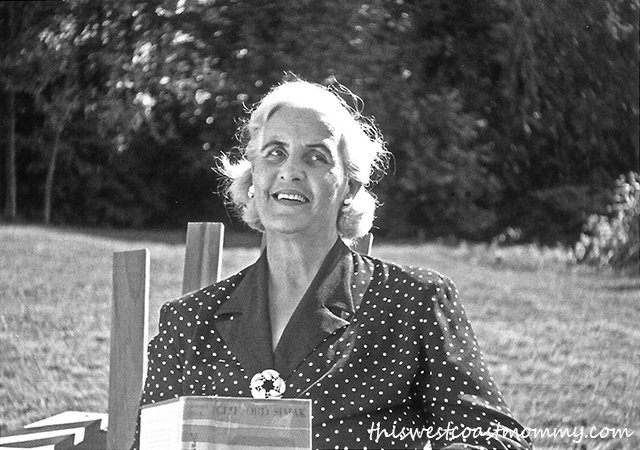
Unfortunately, many families find themselves in a similar situation. Dementia is the most common type of neurodegenerative disorder. In 2010, an estimated 35.6 million people worldwide were living with dementia, and as life expectancy increases, so does that number.
Dementia is a tragedy for any family, but it can be especially difficult to explain to children. Here are twelve books that might help kids from 3-14 years understand and cope with dementia in a loved one, including books on early onset Alzheimer’s.
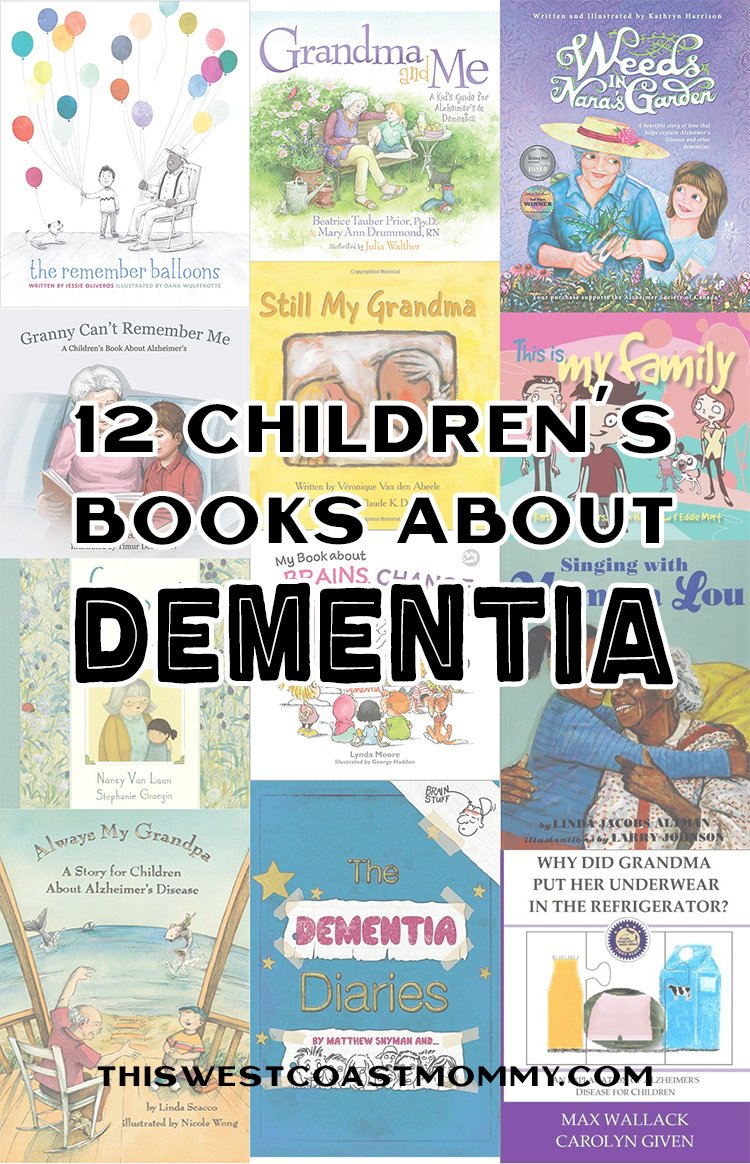
The Remember Balloons – Jessie Oliveros and Dana Wulfekotte
“James’s Grandpa has the best balloons because he has the best memories. He has balloons showing Dad when he was young and Grandma when they were married. Grandpa has balloons about camping and Aunt Nelle’s poor cow. Grandpa also has a silver balloon filled with the memory of a fishing trip he and James took together.
But when Grandpa’s balloons begin to float away, James is heartbroken. No matter how hard he runs, James can’t catch them. One day, Grandpa lets go of the silver balloon—and he doesn’t even notice! Grandpa no longer has balloons of his own. But James has many more than before. It’s up to him to share those balloons, one by one.”
Recommended ages 4-8 years.
Granny Can’t Remember Me: A Children’s Book About Alzheimer’s – Susan McCormick and Timur Deberdeev
“Granny Can’t Remember Me is a lighthearted picture book about Alzheimer’s disease and dementia told from the perspective of a six-year-old boy, appropriate for children in preschool through early elementary school. Granny can’t remember that Joey likes soccer and rockets and dogs. Granny can’t remember much of anything. But with Granny’s stories of her Three Best Days, Joey knows she loves him just the same.”
Recommended ages 3-8 years.
My Book About Brains, Change and Dementia – Lynda Moore
“This friendly book explains the complex concepts of dementia, such as brain function, disease progression and death to pre-school aged children in a direct and age-appropriate way, as well as exploring children’s feelings about these issues. This book caters for children aged 4+ who have a loved one at any stage of dementia.”
Includes helpful introduction for adults. Recommended ages 4-7 years.
Grandma and Me: A Kid’s Guide for Alzheimer’s and Dementia – Beatrice Tauber Price, Mary Ann Drummond, and Julia Walther
“Grandma and Me provides a gentle, yet age appropriate description of Alzheimer’s disease, while providing tools that helps children continue to have a relationship with their loved one despite the disease. Grandma and Me addresses a difficult topic with love and understanding and provides the tools for children to successfully navigate the journey ahead.”
Recommended ages 4-7.
This Is My Family – Barbara Chambers, Karen Harborow, and Eddie Mort
This is a children’s book for kids with a parent with younger onset dementia/early onset dementia. Jack is 13 years old. He lives with his daddy, mummy, sister Amy and dog Sam. Jack’s daddy has dementia. Something isn’t right in his brain and Jack can help him to do things. This kids’ book tells the story of Jack whose father lives with younger onset dementia.”
Recommended ages 4-8.
Forget Me Not – Nancy Van Laan
“Grandma’s whole family is concerned as they start to notice that she is becoming more and more forgetful. After they find her wandering the neighborhood, they need to make an important decision on her behalf—that the time has come for her to move out of her house and into an assisted living community where she can have the best care possible.”
Recommended ages 4-8.
Still My Grandma – Véronique Van den Abeele and Claude K. Dubois
“Camille and her grandma have a special friendship. They have sleepovers, bake chocolate cupcakes together, go out shopping, and giggle at old photographs. But one day Grandma forgets Camille’s name. Then she can’t remember where to put her shoes.
Camille learns that her grandma is sick, but ‘not the kind where you cough and blow your nose.’ Grandma has Alzheimer’s disease, which is what makes her do strange things. And even though Grandma has to move out of her house and rely on nurses to care for her, Camille finds a way to continue their special traditions.”
Recommended ages 4-8.
Always My Grandpa – Linda Scacco and Nicole Wong
“Daniel learns that since Grandpa has Alzheimer’s disease, he will have trouble remembering all the things that belong to him-his clothes, his words, his memories-and eventually, his own grandson. Features gentle narrative and easy-to-understand explanations.”
Recommended ages 5-8 years.
Weeds in Nana’s Garden – Kathryn Harrison
“A young girl and her Nana hold a special bond that blooms in the surroundings of Nana’s magical garden. Then one day, the girl finds many weeds in the garden. She soon discovers that her beloved Nana has Alzheimer’s Disease; an illness that affects an adult brain with tangles that get in the way of thoughts, kind of like how weeds get in the way of flowers. As time passes, the weeds grow thicker and her Nana declines, but the girl accepts the difficult changes with love, learning to take over as the garden’s caregiver.”
$1 from the purchase of this book will be donated to the Alzheimer Society of Canada, Canada’s leading health charity for people living with Alzheimer’s disease and other dementias.
Recommended ages 5-9 years.
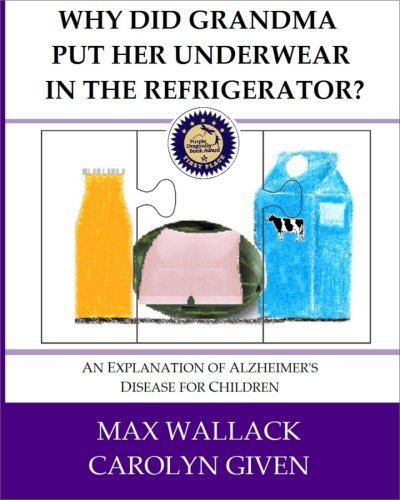 “On some days, seven-year old Julie feels like she’s living in a Fun House. Hers is a topsy-turvy world where the toaster sprouts a toothbrush, and a watermelon gets dressed up in pink underpants for Fourth of July! But on other days, Julie struggles with understanding why her Halloween trick-or-treating got cancelled, or why Grandma can’t remember her name. Julie is struggling with understanding her grandmother’s Alzheimer’s disease.”
“On some days, seven-year old Julie feels like she’s living in a Fun House. Hers is a topsy-turvy world where the toaster sprouts a toothbrush, and a watermelon gets dressed up in pink underpants for Fourth of July! But on other days, Julie struggles with understanding why her Halloween trick-or-treating got cancelled, or why Grandma can’t remember her name. Julie is struggling with understanding her grandmother’s Alzheimer’s disease.”Recommended ages 6-9 years.
Singing with Momma Lou – Linda Jacobs Altman and Larry Johnson
“Nine-year-old Tamika Jordan dreads visiting her grandmother at the nursing home. Momma Lou has Alzheimer’s and always forgets who Tamika is. After her father shows her Momma Lou’s scrapbooks, Tamika comes up with an idea to jog Momma Lou’s memory. Tamika is successful in reaching her grandmother one day when Momma Lou recognizes a newspaper clipping of a Civil Rights demonstration and leads everybody in a celebration of song.”
Recommended ages 6-9 years.
The Dementia Diaries — Matthew Snyman
Brie’s Granddad has always been a serious man, never without a newspaper and knowing the answer to everything. But now he keeps losing track of the conversation, and honestly, Brie doesn’t really know how to speak to him. At first, Fred was annoyed that Gramps had come to live with them, it meant he had to give up his room! But then he starts to enjoy watching old films with him and spending time together… although there’s the small problem of Gramps calling him Simon.
Follow the stories of Brie, Fred, and other young carers as they try to understand and cope with their grandparents’ dementia at all stages of the illness. Adapted from true stories, and supplemented with fun activities and discussion ideas, this book for children aged approximately 7-14 cuts to the truth of the experience of dementia and tackles stigma with a warm and open perspective.
Recommended ages 7-14 years.


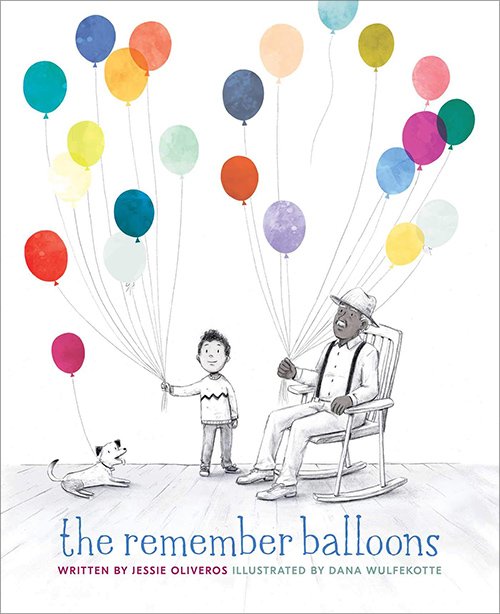
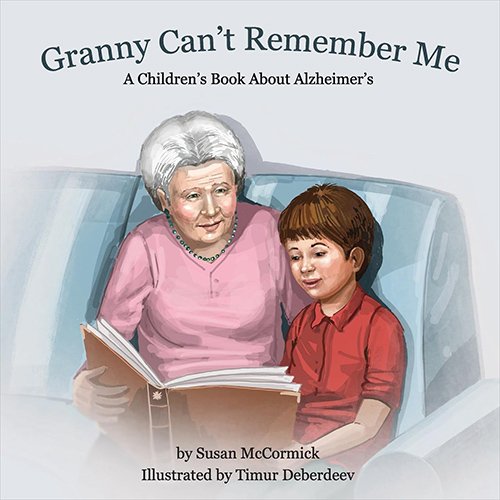
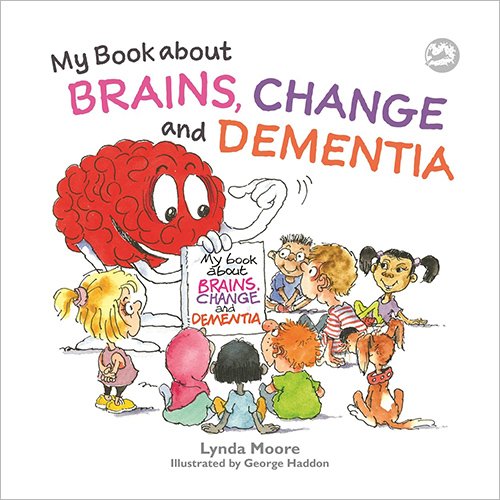
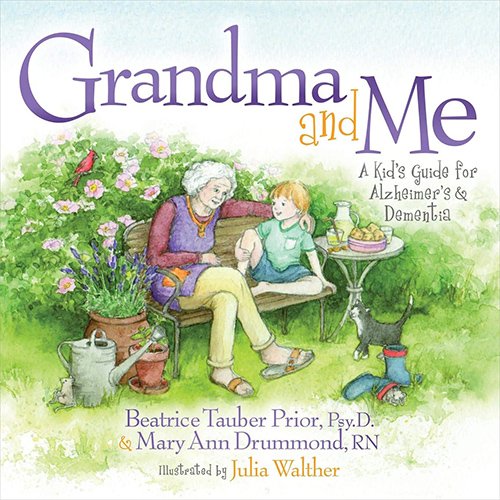
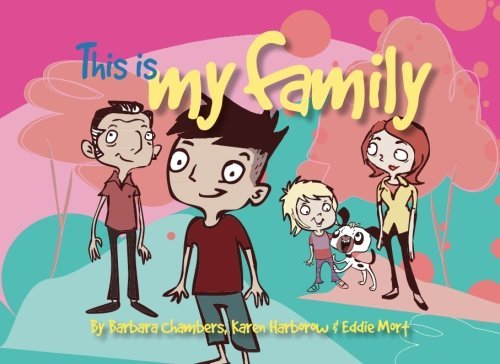
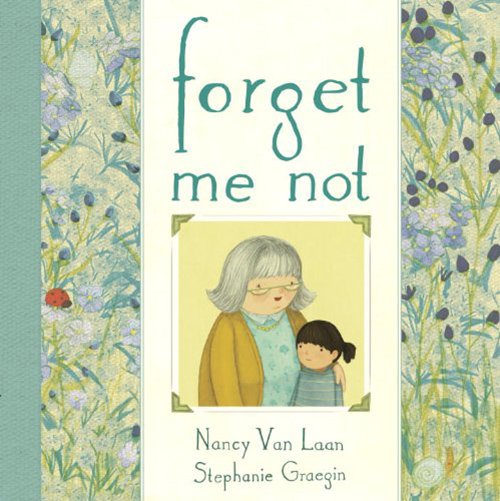
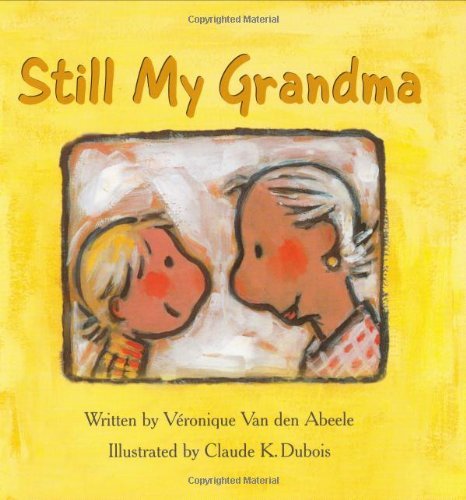
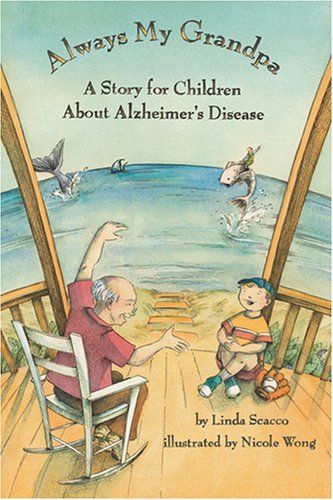
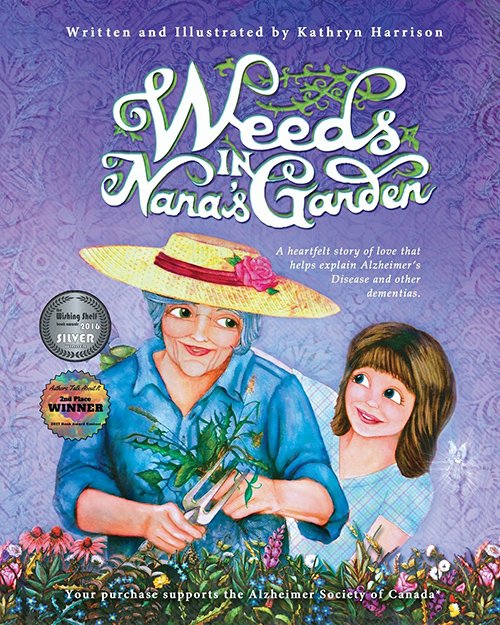
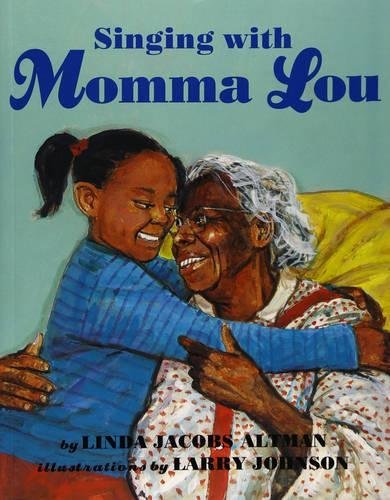
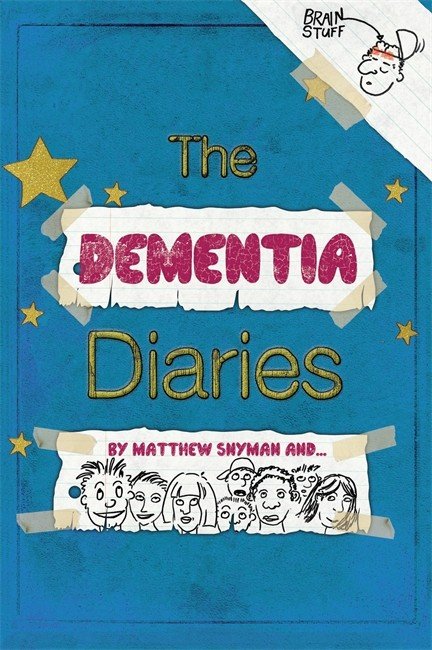
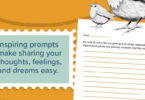
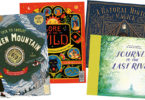
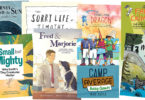
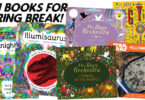
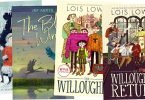

Thanks for the list of these lovely books.
These books will be a huge help to families needing a way to explain dementia and Alzheimer’s to their children in age appropriate ways.
Wow I had no idea these books existed! Such a great idea
This is so important. My father-in-law had Alzheimer’s. I would have been nice to have books like this for my children.
These are great books , my mother inlaw is showing early signs of dementia, thanks for sharing !!
The books are fantastic . I was very close to my grandmother to a spent a lot off weekends there she taught me a lot . She togot Alzheimer’s and went down hill very fast to playing with doll she thought were her children .
These unique books are a wonderful way of helping children learn about Alzheimer’s and dementia.
My grandma suffered from dementia. It happened slowly too but she lived for quite a few years with it, and was in a care home for the last several years of her life. It was hard to explain to my kids, so thanks for sharing these books. I’ll definitely look them up.
I think this book My Book About Brains, Change and Dementia by Lynda Moore is the one we want to read with my little one to learn about dementia.